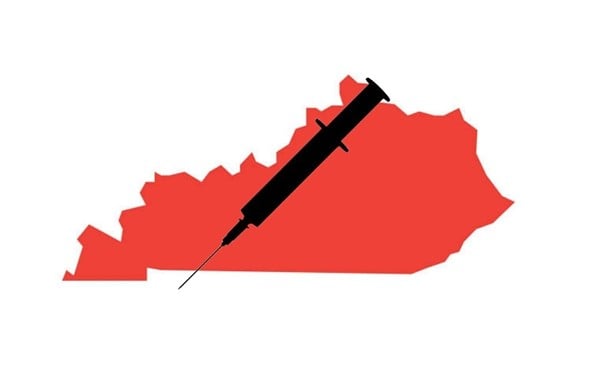Editor's note: The original version of this story incorrectly stated the Kentucky Humane Society played a role in drafting Louisville's 2006 "dangerous dog" ordinance. In fact, it was the Kentucky legislative research coordinator for the Humane Society of the United States — which is not affiliated with KHS — who played a role in crafting the controversial ordinance. LEO regrets the error.
After a mere two months in charge, Louisville Metro Animal Services interim director Debbie Fox has stepped down. Next up to lead the troubled agency: Susan Neumayer, formerly of the city’s “Louisville at Work” stimulus-spending team and wife of Metro Public Works and Assets Director Ted Pullen.
In an interview last month, Fox told LEO she was pleased with the progress she had made at the agency’s 3705 Manslick Road shelter and was comfortable moving on after taking the reins from Wayne Zelinsky, who resigned in February after it was revealed that he and his wife operated a security service promoting adult entertainment.
As such, Neumayer becomes the animal control agency’s third interim director since Jan. 1, 2010. Sources within LMAS and in the city’s “no-kill” animal welfare movement suggest this revolving door of management has paved the way for a power grab by the Kentucky Humane Society, which the city has tapped to essentially take over LMAS’ sheltering operations until an eight-person panel appointed by Mayor Greg Fischer selects a permanent director.
According to the mayor’s office, consultant Karen Koenig of the Kentucky Humane Society is being paid $9,000 a month from LMAS’ operating budget for a period of up to three months.
“Bringing in KHS to supposedly increase adoptions when their philosophy is very close to LMAS’ doesn’t seem like a good fit,” says Donna Herzig, president of the Louisville Kennel Club. “In addition, we need transparency and accountability. I know the mayor has been very forthright with respect to those two things, but it’s hard to have transparency when you’ve got a private organization that isn’t required to release information … What if something’s going wrong with this contract? What do you do? How is that transparent?”
Herzig also contends the Kentucky Humane Society “buys into the myth of pet overpopulation,” which she claims results in adoptable pets at times being euthanized. However, the Kentucky Humane Society’s website states that “all cats and dogs remain available for adoption as long as health and behavior permits.”
“We generally like to focus on our adoption rates,” says KHS public relations and marketing manager Cara Hicks, who declined to discuss how many animals KHS euthanizes at its Steedly Drive shelter. “We adopted out over 6,200 animals — dogs and cats — last year. Our adoption rate right now is about double the national average. We are also animal lovers, and we want to do what is best for them.”
In September 2010, the Metro Council adopted a “no-kill” resolution aimed at reducing the number of animals put down due to overcrowding. Jessica Reid, president of No-Kill Louisville and a member of the eight-person committee charged with finding a new LMAS director, was a catalyst behind that resolution.
“I’m cautiously optimistic,” Reid says of the partnership between LMAS and the Kentucky Humane Society. “It’s a good thing in that they’re just going to work on implementing procedures and some actual policies at that place. At the same time, I’m a little wary because KHS is not no-kill despite how they are perceived. Also, there’s a real fear among the rescue community that, not only because KHS doesn’t normally work with a lot of rescues … but that this is just a revenue stream for KHS and that there’s a possibility that KHS just wants to take over and cherry-pick the animals they deem most adoptable.”
“It’s a mixed bag,” Reid continues, “but like I said, I remain cautiously optimistic, because you never know with that place.”
LMAS employees also have concerns, but for different reasons.
“Things haven’t gotten any better,” says Jessica Durbin, public education coordinator for LMAS. “When you have people like myself and others there who are halfway intelligent people, and instead of listening to their ideas you decide to spend $27,000 on a consultant who can tell you to do the things we’ve already been saying, it’s very frustrating. I like KHS, but the way this is being done has got a lot of us up in arms.”
Durbin points out that the city could hire two part-time animal adoption coordinators — positions at LMAS that are currently not filled — for that amount of money, adding that she doesn’t have much hope for the agency until a new permanent director is selected.
Over the years, KHS has repeatedly lobbied Metro government to take control of animal sheltering in Jefferson County — it already does so in Trimble, Henry and Spencer counties, in addition to providing animal control officers.
Chris Poynter, a spokesman for the mayor’s office, says critics of the Kentucky Humane Society are “jumping to conclusions” and that some of the concerns are unwarranted.
“You have the same people saying, ‘You’ve got to improve,’ but when you take steps to improve they criticize it,” Poynter says. “We’re in the midst of a performance review, and during that review, it became pretty clear that … we have some serious issues at Metro Animal Services that we need to turn around. We need to dramatically increase the number of adoptions. We need to lower the euthanasia rate. We just need to get the house in order, so to speak … The Humane Society is very well established. They are the largest animal rescue society in town. They really have a proven, long, successful track record, so in the interim, we thought it was important to get the best help we could immediately.”
No other shelters or rescue groups were asked to bid on the contract because of KHS’ reputation, Poynter says, and he doesn’t think having a private organization take control of a public agency raises any transparency issues.
“We’re open to other groups,” Poynter says. “We just needed to act quickly.”





